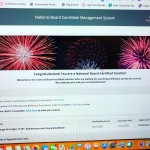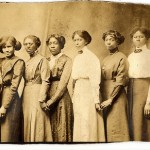This summer, I was fortunate enough to attend the John Hattie Visible Learning conference in Las Vegas. As a leader of a school it is awesome to be able to participate in learning that develops my leadership skills so I can enhance the environment I work in. I want to make sure I am always pushing myself forward. This will allow me to be the best leader I can for the professionals I work with.
I have been in the field working with students with exceptional needs for 10 years and have seen a lot of injustices done to students and staff in my time. I have also witnessed amazing things. At the conference they shared a quote that said, “Teacher expectations become students’ reality.” I don’t know exactly whose quote it is, but the power of this statement hit me, especially as we move into the beginning of the year.
I have also seen recently several quotes about letting students have a fresh start and don’t let another teacher’s narrative about a student become your reality with the student. I wonder how can we help students to see the ability in themselves if we only use an old understanding of who that student was? And if we have lowered expectations because the teacher before us boldly stated that a student was reading at a 1st grade level in 7th grade, how do we change this rhetoric to allow us to see our students for who they are while providing access points to the learning they need to have.
I don’t believe it is always bad to have some information about students before they join a new class. I find it extremely helpful to know some of the strengths that a student has prior to coming in so I am able to build off of those strengths. And the same is true about a student who has yet to master a particular skill. I want to be able to jump right in and begin doing small group, or providing scaffolding if that skill is going to be needed in the first few weeks of school. But we need to avoid, holding a student back because of others’ expectations of the student given to us by someone else. Each teacher is different and unique and the things we expect students to know and be able to do is created in a world by the teacher.
So, this year as I begin to plan for training with teachers and I design professional development I will ensure that the quote, “Teacher expectations become students’ reality,” sits at the forefront of what we are doing. I am hoping this will focus us to always be expecting nothing but amazing things for the students who we are teaching. I want to engage teachers in being able to focus on designing lessons that open up a world of learning instead of shutting learning down but that do not expect less that what students are capable of.










Comments 2
I’ve been seeing those same quotes. I used to get stuck in that vicious loop of asking the grade level below me about students until one year I realized it doesn’t actually matter. A lot of growing happened during the summers and preconceived notions of students wasn’t helpful to anyone.
I once had a principal that would not let us share anything about our students other than their names and basic curriculum/testing data that could be obtained by them. I like this idea but I struggle with the idea of being able to share some things with the new teacher. I remember when I began teaching, I tried to work with our Solution Teams to identify some needs for some of my students. Several years, we ran out of time with all of the meetings and work that goes into identifying students needs for an IEP. My first few years, I learned that if you did not follow up with some students and their new teacher, they would have to start the whole process all over again. Meanwhile, a student is now in another year without having their needs met. I do see some value in letting teachers find things out for themselves but I also see some value in sharing with new teachers. I am curious what others think is the balance between too much and not enough.